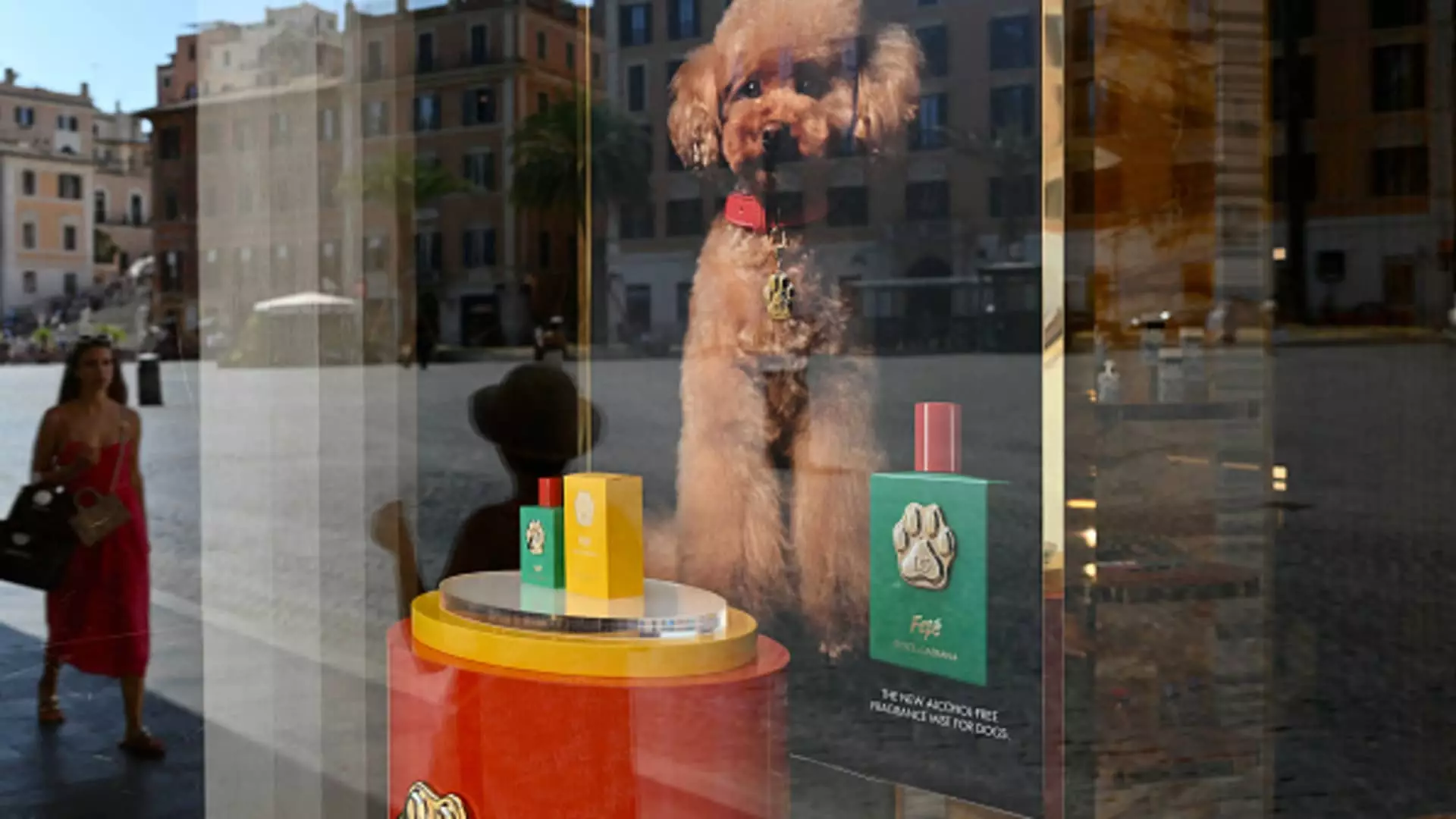Dolce and Gabbana recently released a luxury perfume for dogs, costing over $100, sparking concerns from some animal welfare organizations. The fragrance, inspired by Fefé, the pet dog of brand-owner Domenico Dolce, raised questions about the impact of such products on pets.
Despite being certified as suitable for animal use by the Safe Pet Cosmetics program, the luxury perfume for dogs has faced criticism from experts and animal welfare organizations. They warn that perfumes can interfere with a dog’s sense of smell, a crucial factor in how they communicate and navigate their environment.
Professor Donald Maurice Broom, an animal welfare expert, expressed concerns about the potential negative effects of the perfume on dogs. He highlighted how the strong fragrance could mask essential odor information that dogs rely on for various interactions in their environment. Broom’s comparison of the impact to a dog navigating in a blindingly bright light emphasizes the severity of the issue.
The RSPCA also raised concerns about the anthropomorphization of dogs and the use of products that could confuse their sensory experiences. Senior Scientific Officer Alice Potter emphasized the importance of avoiding strong-scented products like perfumes or sprays, as they could be unpleasant and disruptive to a dog’s well-being.
While some experts highlight the negative impact of strong perfumes on dogs, there is acknowledgment of the calming effects of certain scents. Lavender and ylang-ylang, ingredients found in the fragrance, can have positive effects on dogs if used in moderation and are not overwhelming to their senses.
The controversy surrounding Dolce and Gabbana’s luxury perfume for dogs sheds light on the importance of considering the well-being of pets when introducing new products to the market. While there may be potential benefits to using scents like lavender or ylang-ylang, it is crucial to prioritize the sensory experience and communication abilities of dogs to ensure their welfare is not compromised. Animal welfare organizations and experts play a vital role in raising awareness about such issues and advocating for the ethical treatment of animals in all aspects of consumer products.

